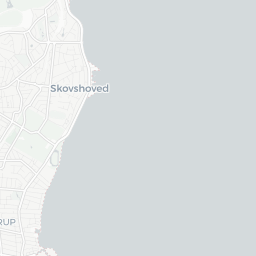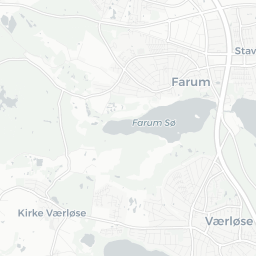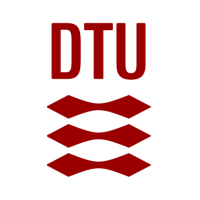Professor in Population Genomics and Biodiversity - DTU Aqua
Danmarks Tekniske Universitet (DTU)
DTU invites applications for a position as professor in population genomics and biodiversity. The professorship is affiliated with the National Institute of Aquatic Resources (DTU Aqua), Section for Marine Living Resources. Workplace will be in DTU Aqua’s center for freshwater ecology and fisheries in Silkeborg, which includes the research area population genetics. However, considerable activities at other locations of the Institute and participation in international expert groups can be expected.
DTU invites applications for a position as professor in population genomics and biodiversity. The professorship is affiliated with the National Institute of Aquatic Resources (DTU Aqua), Section for Marine Living Resources. Workplace will be in DTU Aqua’s center for freshwater ecology and fisheries in Silkeborg, which includes the research area population genetics. However, considerable activities at other locations of the Institute and participation in international expert groups can be expected.
DNA analysis techniques have greatly improved the understanding of how aquatic organisms are separated into local populations, that differ in biological properties and dynamics. Despite this knowledge leap, genomic tools and insights are still underused in biodiversity conservation and living resource management. Implementation of population-based tracking is especially important in species that are exploited in aggregations of mixed of populations with different biological properties and different management needs.
The professorship is timely, because of international agreements such as the 2030 European Biodiversity strategy, in support of reaching UN SDG goals 12 and 14, and as addressing Biodiversity is a strategic DTU theme.
Responsibilities and qualifications
The professor is expected to contribute to scientific advancement and technical developments within the research field of applied DNA, and to combine DNA technologies with other types of data collection and analysis, e.g. tracking, stock- and ecosystem modelling to provide the scientific underpinnings needed for reconciliation of aquatic/fisheries management with biodiversity conservation.
This requires close cooperation with other research areas and sections of the institute, as well as national and international research organisations. Scientific themes to be handled should include:
- Biological stock identification: development and application of population genomics and -genetic analyses in freshwater and marine organisms in space and time, with particular focus on migratory populations.
- Evolutionary genomics: determining adaptive variation within and among populations, including combining molecular and experimental analyses to determine drivers of marine connectivity.
- Conservation and management: implementation of genetic data in fisheries data, conservation planning and advice to managers with special emphasis on life-stage specific, spatial and temporal variation.
- Technological innovation: development of eDNA (environmental DNA) based methods to determine species and population composition in samples from fisheries and the natural environment, with the aim to support biodiversity management e.g. in real-time.
The Professor is expected to work across different sections and research areas at DTU Aqua, the university and national and international collaboration partners. This includes international collaborations and commitment to the development of ecosystem-based fisheries management approaches as well as conserving aquatic biodiversity and ecosystem function.
The professor will be involved in national and international advisory functions, hereunder to the Ministry of Food, Agriculture and Fisheries as well as the International Council for the Exploration of the Sea (ICES).
Required is a track record in research leadership, including planning, funding, implementing as well as running interdisciplinary national and international research initiatives within the research field.
Results should be disseminated in peer-reviewed publications and international conferences as well as dedicated outlets aiming to inform international advisory and management organisation, stakeholders and the society at large.
The professor is expected to take a lead role in teaching at different university levels, specifically to engage within the MSc in Sustainable Fisheries and Aquaculture, taught at DTU’s campus in Hirtshals, and the BEng in Fisheries Technology, taught in Sisimiut, Greenland, but as well supervision of PhD candidates, training of Postdocs and mentoring tenure-track early career scientists.
DTU employs two working languages: Danish and English. You are expected to be fluent in at least one of these languages, and in time expected to master both as you will deliver scientific advice and teach in Danish over time.
You will be assessed against the responsibilities and qualifications stated above and the following general criteria:
- Research impact and experience, funding track record and research vision
- Leadership, collaboration, and interdisciplinary skills
- Documented experience and quality of teaching
- International impact and experience
- Societal impact
- Innovativeness, including collaboration with industry
- Communication skills
Salary and terms of employment
The appointment will be based on the collective agreement with the Danish Confederation of Professional Associations. The allowance will be agreed upon with the relevant union.
Further information
Further information may be obtained from DTU Aqua’s Director Fritz Köster, email:
fwk@aqua.dtu.dk, cell phone: +45 21362805, Vice-director Anders Koed, email:
ak@aqua.dtu.dk, cell phone: +45 21685641 or Section head Carsten Hvingel, email:
carhv@aqua.dtu.dk, cell phone: +45 93511196.
You can read more about DTU Aqua on
https://www.aqua.dtu.dk/.
If you are applying from abroad, you may find useful information on working in Denmark and at DTU at
DTU – Moving to Denmark.
Application procedure
Your complete online application must be submitted no later than 10 June 2025 (23:59 Danish time).
Applications must be submitted as one PDF file containing all materials to be given consideration. To apply, please open the link "Apply now", fill out the online application form, and attach all your materials in English in one PDF file. The file must include:
- Application (cover letter) addressed to the President
- Vision for teaching and research
- CV including employment history, list of publications indicating scientific highlights, H-index and ORCID (see
- Teaching portfolio including documentation of teaching experience
- Academic Diplomas (MSc/PhD)
http://orcid.org/)
You can learn more about the recruitment process
here.
All interested candidates irrespective of age, gender, disability, race, religion or ethnic background are encouraged to apply. As DTU works with research in critical technology, which is subject to special rules for security and export control, open-source background checks may be conducted on qualified candidates for the position.
DTU Aqua provides research, advice, innovation and education at the highest international level within the sustainable exploitation of living marine and freshwater resources, the biology of aquatic organisms, and the dynamics of ecosystems as well as integration of results in ecosystem-based management. DTU Aqua is structured into 9 scientific sections, covering 14 different research areas and has 360 employees, of whom a third are scientific staff. The department has a number of scientific and administrative support functions, including the research vessels DANA and HAVFISKEN. DTU Aqua has locations in KGs Lyngby, Hirtshals, Nykøbing Mors, and Silkeborg and regular activities in Greenland.
Technology for people
DTU develops technology for people. With our international elite research and study programmes, we are helping to create a better world and to solve the global challenges formulated in the UN’s 17 Sustainable Development Goals. Hans Christian Ørsted founded DTU in 1829 with a clear mission to develop and create value using science and engineering to benefit society. That mission lives on today. DTU has 13,500 students and 6,000 employees. We work in an international atmosphere and have an inclusive, evolving, and informal working environment. DTU has campuses in all parts of Denmark and in Greenland, and we collaborate with the best universities around the world.
Adresse:
This job posting is collected from company pages and is only shown as short resume. Read entire job ad here:















